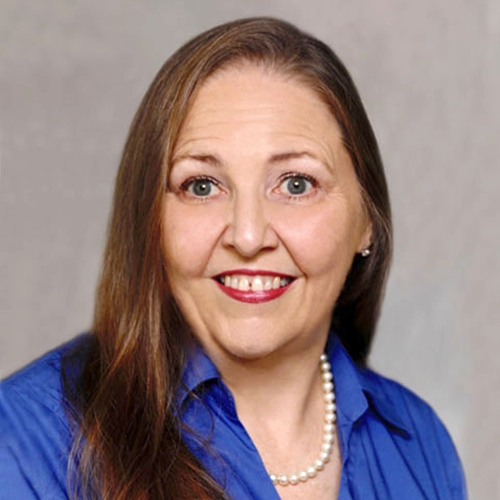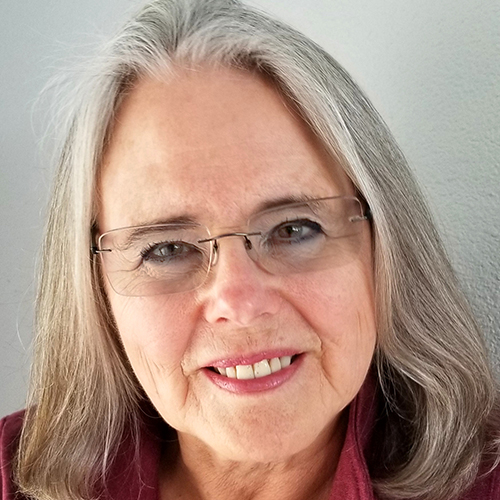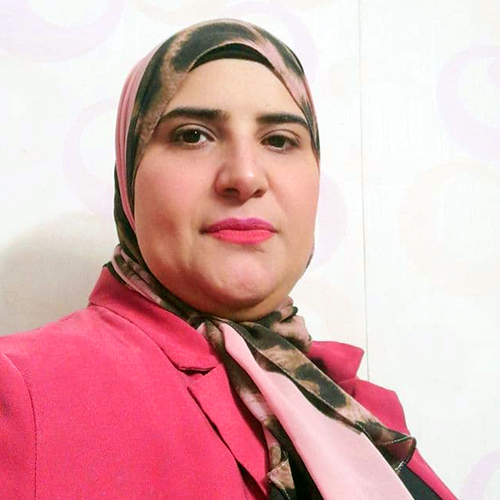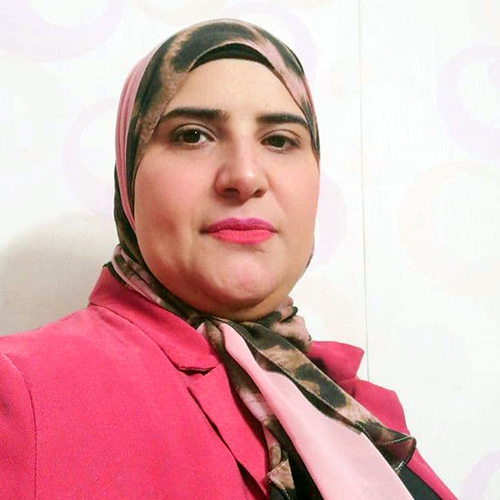 Neonatology Online Course(s) & Continuing Education
Neonatology Online Course(s) & Continuing Education
Access the latest clinical skills and research for Neonatology for Maternal Health professional training. These Neonatology online courses provide practice-changing skills and valuable perspectives from leading global experts. This Neonatology education has been accredited for a variety of CEUs / CERPs and can be accessed on-demand, at your own pace.

Necrotizing Enterocolitis (NEC: Pathophysiology, Current Treatment, and Prevention

Bobby Bellflower is a Neonatal Nurse Practitioner with extensive experience in clinical practice, education, and administration. Her undergraduate nursing degree is from University of Memphis, and her masters and doctorate is from University of Tennessee Health Science Center (UTHSC). Currently, she is the Director of Doctor of Nursing Practice (DNP) Programs at UTHSC in Memphis, TN and does her clinical practice at Regional One Health, Level IIIc NICU. In the past, she served as director of the NNP program at UTHSC and, most recently (2010-2016), was the manager of the NNP Service at Le Bonheur Children’s Hospital in Memphis. Her research interests include prevention of NEC in neonates, evidence-based practice for APRNs and bedside nurses, and QIs.
Although survival rates and morbidity of premature and ill newborns have improved over the past decades, Necrotizing Enterocolitis (NEC) remains a significant problem for premature babies. NEC is a disease process that continues to contribute to mortality and morbidly in the Neonatal Intensive Care Unit (NICU). Recent studies indicate there are ways to diminish the incidence of NEC and research is actively looking for ways to prevent NEC. The presentation will discuss presumed causes and pathophysiology of NEC, current treatment guidelines including drug treatment, and will look at ongoing research to prevent NEC.


Karel Allegaert received his MD and PhD at the KU Leuven, Belgium where he trained as a pediatrician-neonatologist, with an additional expertise in clinical pharmacology. He is professor at the KU Leuven (department of development and regeneration) and is clinical consultant at the pediatric intensive care unit of the Sophia's Children's Hospital, Rotterdam, the Netherlands. His research is focused on developmental perinatal pharmacology and neonatal and pediatric pain, has been supported by European funding (Albino study), and national grants (FWO, IWT-SBO) and has resulted in about 300 PubMed citations, H index 33. He is member of the Royal Academy of Medicine of Belgium, president of European Society of Developmental Pharmacology and section head clinical pharmacology of the European Society of Pediatric Research.
Inadequate pain management in neonatal life impairs neurodevelopment outcome because it alters pain thresholds, pain-or stress-related behaviour, and physiological responses later in life. However, there are recently also emerging animal experimental and human epidemiological data on the impact of analgo-sedatives on neuro-apoptosis and impaired neurodevelopmental outcome. As a consequence, the management of neonatal pain is in search of a new balance, and these conflicting observations are the main drivers to tailor our pain management in neonates. Adequate pain management is based on prevention, assessment, and treatment with subsequent reassessment. Issues related to prevention and assessment tools are covered. Non-pharmacological (e.g., complementary interventions like facilitated tuking, nonnutritive sucking) and pharmacological (e.g., acetaminophen, opiods, ketamine, propofol) treatment modalities were reviewed and reflect the increased knowledge on neonatal pain management. Each topic ends with some take-home messages that in part also reflects the speakers option on the current status of this topic

View Details / Enroll

Neonatal Cardiac Defects: Immediate and Long-Term Management

Angela Gooden, a Pediatric Nurse Practitioner with dual certification and expertise in pediatric cardiology, is the Director of Advanced Practice Providers at Texas Children's Hospital. Ms. Gooden has a special interest in reducing morbidity and mortality for infants born with complex congenital heart defects who require staged palliative surgical interventions. Additionally, in her leadership role, Ms. Gooden is focused on promoting the advanced practice role through advocacy, organizational engagement, professional development, and mentorship. She currently serves as a legislative ambassador for the Texas Nurse Practitioners organization.
In neonates, a comprehensive approach to the management of known or suspected cardiac defects is critical to ensuring diagnostic accuracy and the best possible outcome. Essential elements of this process include early recognition, initial resuscitation and stabilization, systematic evaluation, and immediate and long-term management strategies.


Dr Denise Harrison is a Professor and the Chair in Nursing Care of Children, Youth and Families at the University of Ottawa and Children's Hospital of Eastern Ontario (CHEO), Canada. Her program of research titled Be Sweet to Babies focuses on pain management for neonates, infants and young children. She has co-produced a series of videos with parents and clinicians in multiple languages, showing effective pain management during painful procedures for newborns and infants up to one year of age. The videos are being used as knowledge translation interventions, and their effectiveness of implementation is being evaluated in diverse settings. Dr Harrison is an advocate for sick and healthy babies and their families, and argues that no non-urgent painful procedure should be performed without use of evidence-based pain management strategies.
There is abundant high-quality evidence demonstrating analgesic effects of breastfeeding, skin-skin care and sweet solutions (sucrose and glucose) for newborn infants during short lasting acute painful procedures. There is also growing and concerning evidence about long lasting adverse effects of painful procedures. Yet, studies continue to show that painful procedures are routinely performed on newborns with no pain management. This presentation will include an overview of the three recommended newborn procedural pain management strategies and the knowledge to action (KTA) gap concerning utilization of evidence in practice. Barriers and facilitators to using the three strategies in diverse clinical settings will be discussed and knowledge translation strategies being used to address KTA gaps in pain management in newborns will be presented.

Neonatal Pharmacodynamic and Pharmacokinetic Characteristics and Implications for Pharmacotherapeutic Decisions

John Brock Harris, Assistant Professor of Pharmacy, joined Wingate University School of Pharmacy in November 2012. He earned his Bachelor of Science in Chemical Engineering concentrating in Biosciences from North Carolina State University in 2002. After completing undergraduate work, he received his Doctorate of Pharmacy from The University of North Carolina – Chapel Hill School of Pharmacy in 2007. He completed his first year post-graduate education at New Hanover Regional Medical Center in Wilmington, North Carolina followed by second year post-graduate education specializing in pediatrics at Monroe Carell, Jr. Children’s Hospital at Vanderbilt in Nashville, Tennessee. Dr. Harris became Board Certified in Pharmacotherapy while completing his pediatric post-graduate work in 2009 and Board Certified in Pediatric Pharmacotherapy in 2016. Dr. Harris is an inpatient clinical practice faculty member in pediatrics at Novant Health Hemby Children’s Hospital in Charlotte, North Carolina where he has practiced for nearly 10 years.
This presentation will focus on the pharmacodynamic and pharmacokinetic principles in neonatal populations and the implications for medication selection and monitoring. We will discuss parameters related to these principles and how pharmacotherapeutic regimens are determined using them. Absorption, distribution, metabolism, and elimination of medications and the clinical impact of neonatal patient characteristics and medication properties on pharmacotherapeutic decisions will also be presented. We will also contrast medications and why medications may be preferred for some neonatal disease states due to medication characteristics. The information provided will act as a foundation for pharmacotherapeutic recommendations based on patient and mediation specific properties for neonatal disease states.

Neonatal Stabilization and Transport: New Science, Old Reminders and Some Common Sense

Webra has over 40 years of experience in neonatal critical care with over 25 in neonatal transport. Currently she is the coordinator for the Maryland Regional Neonatal Transport Program, a private joint venture between University of Maryland Medical Center and Johns Hopkins Hospital. Her position includes administrative and clinical oversight to the transport program and outreach education to all referral hospitals. Webra has held leadership positions in National Association of Neonatal Nurses (NANN), the American Academy of Pediatrics (AAP) Section on Transport Medicine, Commission on Accreditation of Medical Transport Systems (CAMTS) and American Academy of Neonatal Nursing (ANN). She is author of various articles, contributing author to books and publications. She has been a Content Reviewer of the 2006 and 2013 S.T.A.B.L.E. Program Learner Manuals, S.T.A.B.L.E. Program Instructor and Lead Instructor Trainer. Dr. Price-Douglas is an experienced, knowledgeable and well-respected presenter at national/ international meetings and has been on various planning committees/university faculty involved in educational activities including didactic, interactive and simulation programs. She holds certification as a neonatal nurse practitioner and lactation consultant. Webra is on the RISE team (Resilience in Stressful Events) at Johns Hopkins. She is interested how stressful/critical incidents (maternal/neonatal death/ stabilization attempts) impact the nursing/medical staff. She has completed formal education on integrative medicine strategies to support families and health care providers and promote resiliency.
The goal of neonatal stabilization/transport is to provide therapies and services to reduce mortality and morbidity. This presentation will consist of the introduction of new science, review older material and some common sense information that is often forgotten. Neonatal mortality and morbidity data and new evidence guides our practice but the collection and dissemination of that information can be challenging. As respiratory management options expand, keeping transport providers skilled in airway management/intubation and new modalities can be difficult. Evidence regarding brain development, Hypoxic Ischemic Encephalopathy (HIE) identification and management and glucose metabolism and implications for long term development continues to evolve. The Golden Hour approach to management is so much more than just time and preterm infants. There is old and new information to offer guidance in the management of suspected sepsis in the neonate. Stabilization priorities and how to begin and continue will be discussed. Safety must be reflected in every stabilization in every setting.

Newborn Screening for Critical Congenital Heart Defects (CCHD) Using Pulse Oximetry

Regina Grazel is a certified perinatal advanced practice nurse with more than 30 years of neonatal nursing experience. She holds several clinical designations, including ANCC board-certified high-risk perinatal nurse, neonatal resuscitation program regional trainer, NANN neonatal developmental care specialist, and certified breastfeeding counselor. Jean is currently serving on the National Association of Neonatal Nurses (NANN) Board of Directors as the Immediate Past President having completed her term as President in October 2016. Jean is also a former president of the Delaware Valley chapter of NANN. After many years as a Perinatal Clinical Nurse Specialist in the acute care setting, she has moved into the public health arena. Jean is employed by the New Jersey Chapter of the American Academy of Pediatrics as the Program Director for the New Jersey Department of Health Critical Congenital Heart Defects Screening Program and Zika Infant Surveillance.
This presentation will review the background and importance of newborn screening with pulse oximetry to aid in the early detection of critical congenital heart defects and other serious conditions. Factors influencing implementation of the screening including legislation, advocacy efforts and recommendations by professional medical associations will be covered. Best practices for performing the screening will be reviewed as well as implications for screening in the NICU and other special populations. The results of the first statewide screening program implemented in the US will be shared to demonstrate the unique contribution of pulse oximetry in the detection of previously unrecognized CCHD.

View Details / Enroll

Newborns are Children too! Ethical Challenges in Neonatology
 Franco Carnevale,
RN, PhD (Psych), PhD (Phil); Nurse, Psychologist, Clinical Ethicist(Children & Youth)
Franco Carnevale,
RN, PhD (Psych), PhD (Phil); Nurse, Psychologist, Clinical Ethicist(Children & Youth)

Franco A. Carnevale is a nurse, psychologist and clinical ethicist. He completed: an undergraduate nursing degree, three master's degrees (nursing, education, bioethics), and doctorate in counseling psychology at McGill University; a master’s degree in philosophy at Université de Sherbrooke and a second doctorate in moral philosophy at Université Laval. Dr. Carnevale is the founder and principal investigator for VOICE (Views On Interdisciplinary Childhood Ethics); a McGill University-based international initiative to advance knowledge and practices relating to ethical concerns in childhood. Current academic appointments include (McGill University): Full Professor, Ingram School of Nursing; Associate Member, Faculty of Medicine (Pediatrics); Adjunct Professor, Counselling Psychology; Affiliate Member, Biomedical Ethics Unit. Clinical appointments include: Associate Member, Pediatric Critical Care, Montreal Children's Hospital; Clinical Ethics Consultant, The Lighthouse, Children and Families (pediatric hospice and respite care); Clinical Ethicist, Child, Adolescent, and Family Services, Douglas Mental Health University Institute; Chair, Clinical Ethics Committee, Shriner's Hospitals for Children (Canada). Dr. Carnevale is a founding member of the Board of Directors of the World Federation of Pediatric Intensive and Critical Care Societies (WFPICCS) and founding member of the Editorial Board of Pediatric Critical Care Medicine.
 Franco Carnevale,
RN, PhD (Psych), PhD (Phil); Nurse, Psychologist, Clinical Ethicist(Children & Youth)
Franco Carnevale,
RN, PhD (Psych), PhD (Phil); Nurse, Psychologist, Clinical Ethicist(Children & Youth)
Advances in pediatric ethics have helped identify ethical concerns that arise in the care of children as well as strategies for addressing these concerns. Despite these important innovations, some significant ethical problems persist in neonatology, which seem rooted in particular challenges involved in the care of newborns and their families. These include concerns regarding: excessive care for infants with limited prognoses; dismissive care toward projected disability; providing palliative care; parental roles and responsibilities; inadequate pain management; cross-cultural disagreements; and moral distress among staff and parents. These tensions commonly relate to: (a) difficulties in defining infants’ best interests; (b) tensions regarding the respective decisional authority of parents and health professionals; and (c) tragic situations where all treatment options seem wrong. Strategies for analyzing and reconciling these ethical concerns will be discussed.

View Details / Enroll


After 37 years as an attending neonatologist and 18 years as medical director of lactation services, Nancy retired from clinical practice 2019. She graduated from medical school and did her training in pediatrics at the University of North Carolina, Chapel Hill. She did her fellowships in Neonatal-Perinatal Medicine and ECMO at UCSD Medical Center in San Diego. She has been a board-certified lactation consultant since 1988.
Nancy co-founded the San Diego County Breastfeeding Coalition in 1994. She was the Breastfeeding Coordinator for AAP CA Chapter 3 from 1992 until 2020, Board Member of HMBANA 2015-2019 and established the first Donor Milk Depot in San Diego over 25 years ago. Nancy is a past president of the Academy of Breastfeeding Medicine. She wrote, and continues to update, the very first ABM Protocol on Hypoglycemia and Breastfeeding.
In 2014 Nancy was awarded the Golden Wave Award by the California Breastfeeding Coalition for her efforts to reduce obstacles to breastfeeding in California, and the WIC Breastfeeding Champion Award in 2017. She received AAP Special Achievement Awards in 1997 and 2021 for her breastfeeding education and promotion efforts.
On a personal note, she is the mother of a (formerly breastfed) archaeology student and lives in San Diego, CA, with her significant other, their dog, Darwin, and a beautiful view of the ocean.
Topic: NICU Nutrition: Best Practice for Best Outcomes - [View Abstract]
Topic: NICU Nutrition: Current Status, Opportunities & Challenges - [View Abstract]
In the neonatal period, low birth weight, preterm, and ill infants, regardless of gestational age, have greater nutritional needs than at any other time in their lives. Without the last trimester, the preterm infant faces the most demanding growth period with a nutritional deficit. For any NICU infant, the stress of medical conditions may contribute to increased nutrient needs. Human milk is a complex fluid that simultaneously provides nutrients and bioactive components that facilitate the adaptive, functional changes required for the optimal transition from intrauterine to extrauterine life. We will discuss the goals and methods of providing appropriate nutrition for NICU infants to promote optimal short- and long-term outcomes.

View Details / Enroll


Dr.Fayrouz Essawy Pediatrician, Neonatologist, IBCLC • Neonatology Consultant • Bachelor of Medicine and surgery - Cairo University 2004 • Master degree of pediaterics - Ain shams University 2012 • Egyptian neonatology fellowship 2015 • IBCLC 2015 • LCCC course instructor & developer 2016 • Breastfeeding medicine specialist. • Baby friendly coordinator. • Harvard Graduate of Training of trainee program 2020. • Member of the Egyptian Society of Pediatrics • Member of the Egyptian lactation consultant association (ELCA) • Member of the academy of breastfeeding medicine (ABM) • Member of the international lactation consultant Association (ILCA)
The feeding of breast milk during the NICU admission reduces the risk of short-and long-term morbidities especially in premature infants. Breastmilk provides immunological, anti-infective, anti-inflammatory, epigenetic, and mucosal membrane protecting properties. The mechanisms by which human milk provides its protection are varied. These mechanisms include immunological and specific unique human milk components that are not present in formula. Thus, the feeding of mother’s own breastmilk should be a NICU priority and every NICU should have a breastmilk storage and handling policy. In this presentation we will discuss how we can counsel parents about the infection control measures and guidelines related to storage, handling and administration of breastmilk to babies in the NICU. Learn more about hospital grade pumps, pumping at home vs pumping in hospital setting, prevention and management of potential mistakes such as giving a child another mother’s milk and how to handle and store fortified breastmilk.

View Details / Enroll












